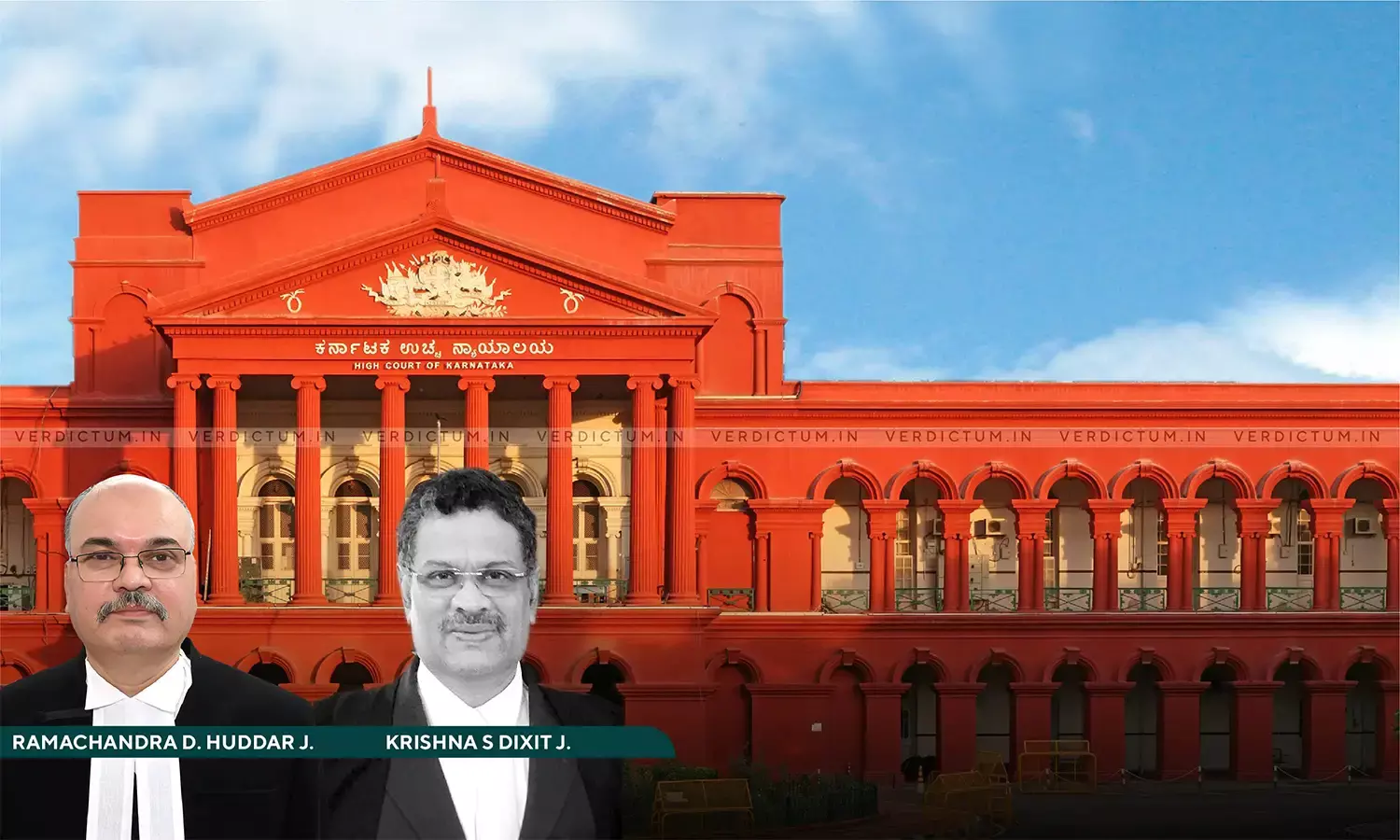Bank Employee Convicted Of Moral Turpitude Is Liable To Be Terminated: Karnataka HC Upholds Dismissal Of Vijaya Bank’s Ex-Sr. Manager
The Karnataka High Court upheld the dismissal of an ex-senior manager at Vijaya Bank, observing that a bank employee convicted of an offence involving moral turpitude was liable to be terminated under Section 10(1) of the Banking Regulation Act (the Act).
The Bench noted that Section 10(1) of the Act enacted a "Parliamentary injunction" on the banks to discontinue the employment of employees convicted of an offence involving moral turpitude, regardless of sentencing. Mere conviction resulted in the termination of the employer-employee relationship, leaving banks no discretion to disobey the directive.
A Division Bench of Justice Krishna S Dixit and Justice Ramachandra D. Huddar observed, “Once an employee of a bank is convicted for an offence involving moral turpitude as has happened in this case, he is liable to be discontinued from employment as discussed above. However, the text of Sec.10(1)(b)(i) does not indicate as to whether such disruption of vinculum juris is by way of dismissal or discharge simplicitor. When moral turpitude is involved and the bank is put to considerable financial loss, one can safely assume that the legislative intent is dismissal of the delinquent employee.”
Advocate Pradeep S Sawkar represented the appellant, while Advocate Mohith Kumr K. appeared for the respondent.
The Vijaya Bank (Bank) challenged the order of the Single Judge which set aside the dismissal of the Senior Manager (employee) by the bank and additionally directed his reinstatement with full service and monetary benefits.
The employee was dismissed from service for lending money to fictitious persons without duly securing the repayment of loans. On account of this, the bank suffered a huge financial loss. The disciplinary authority found the employee guilty, resulting in his dismissal. His departmental appeal was also rejected.
Meanwhile, the employee also faced criminal charges under Section 120B read with Sections 420, 468 and 471 of the IPC and under Sections 13(1)(d) and Sec.13(2) of the Prevention of Corruption Act, 1988. The employee was convicted and the same was upheld by the High Court, though the Supreme Court later reduced the imprisonment to one year from three years but increased the fine imposed.
The Division Bench noted that the disciplinary proceedings were conducted with the employee’s participation, and the findings of the enquiry officer, as well as the subsequent orders of dismissal, were justified.
The Court stated that “the provisions of Section 10(1) of the 1949 Act enact a Parliamentary injunction to the bank to discontinue the employment of a person who is convicted for an offence involving moral turpitude, whether he is sentenced or not. In other words, mere conviction results into the obligation to disrupt employer-employee relationship. This provision leaves with the bank no discretion to disobey the direction. It is relevant to state that there is no challenge to the vires of this provision, which continues on the Statute Book with impunity & efficacy.”
Accordingly, the High Court allowed the appeal.
Cause Title: Vijaya Bank v. M Ravindra Shetty (Neutral Citation: 2024:KHC:19153-DB)
Click here to read/download the Judgment




